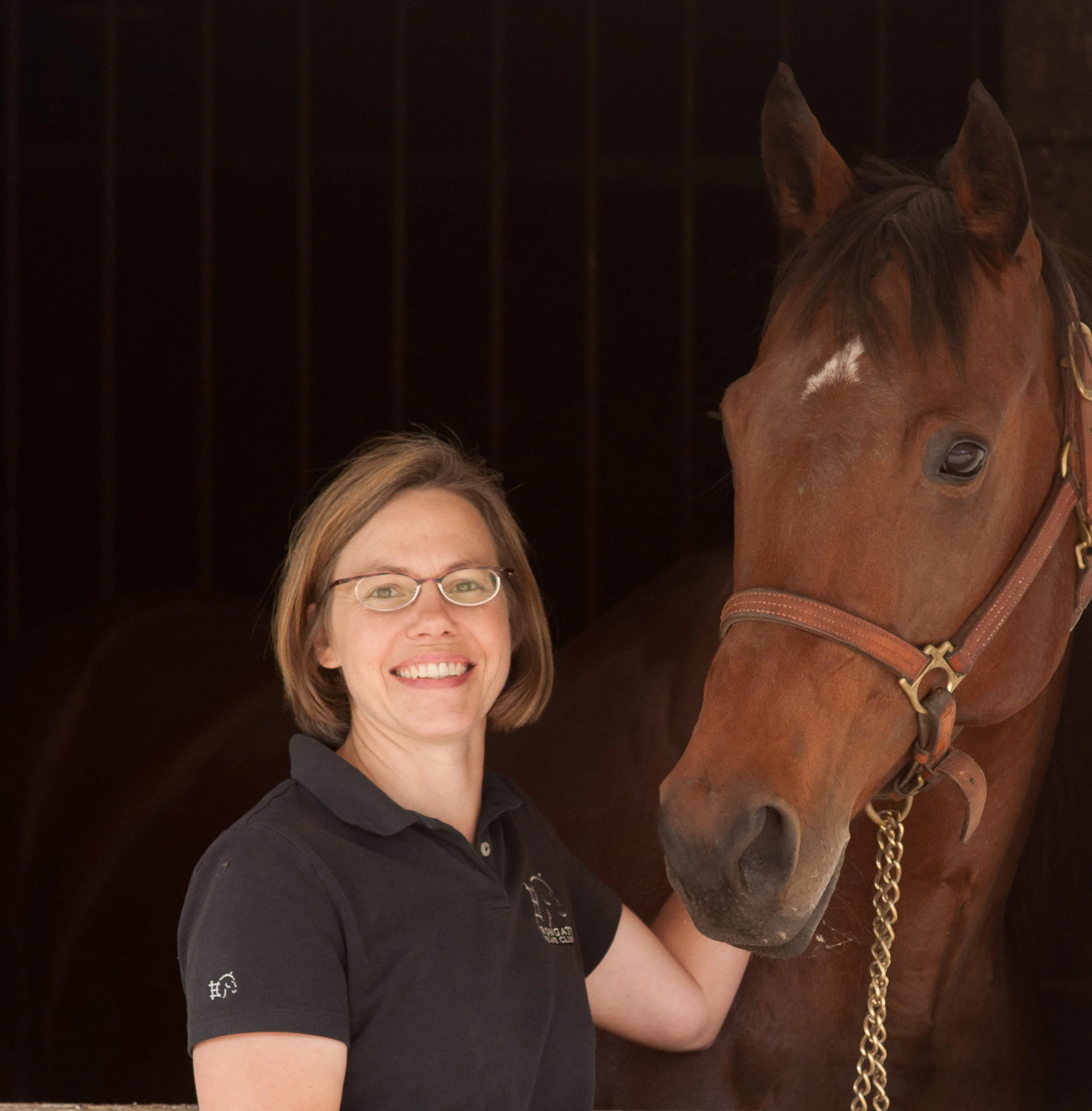Written By: Lisa Nesson DVM
Everyone who owns animals knows that they will pass away at some point, often before their owners. While owning animals that become our trusted companions has tremendous benefits for us, it also can bring tremendous heart break when it is their time to go. Making the decision to euthanize can be one of the most responsible, difficult and compassionate decisions a horse owner can make for their horse.
The request for euthanasia of a horse can come for many reasons. It may be in an emergency setting - some medical condition or accident has occurred that has created a situation where the horse has little to no chance of surviving what is happening to them. Or, in that same setting, the condition they are suffering from will require immediate, expensive veterinary care that an owner may not be able to afford or finance. Or perhaps the horse has a chronic condition, such as laminitis or organ failure, that has been getting treatment but has progressed to a point that the end is being considered for humane or economic reasons. Harder still is the situation where the horse is relatively healthy but has a lameness condition that makes it unusable, the owner can't afford to keep the horse and wants to get another horse so they can continue to pursue their own competition/pleasure riding goals. Or something has changed in the owner's health or economic situation and they can no longer care for the horse. It may also be that it is a geriatric horse that is suffering from debilitating effects of old age, or at the other end of the spectrum, a foal with significant untreatable birth defects. Dangerous behavioral problems is another reason some owners start to consider euthanasia. Every situation is different and can be influenced by the horse's psychological ability to handle treatment and discomfort as well as the owner's ability to provide treatment.
Some questions an owner should try to answer or consult with their veterinarian about when considering euthanasia of their horse include:
Are there alternatives to euthanasia such as re-homing or retirement to pasture soundness?
Is the horse suffering and how long will it experience this level of pain?
Is the condition curable?
Is the condition incurable and transmissible to other horses?
Can you provide the care required to treat the horse, physically and financially?
What is the likelihood that the horse will recover fully, to pasture soundness or some level of usefulness?
Is the horse continuing to show an interest in life?
Answering these questions in an unexpected emergency situation can be overwhelming, but hopefully you have developed a relationship with a veterinarian you trust and they can help you make the right choice for you and your horse. If you are unsure, consider getting a second opinion so that you are more comfortable with the decision. Taking time to consider how you would handle an emergency with each horse you own before an emergency happens may make the situation less overwhelming. Rational, practical discussions with your veterinarian when your horse is suffering from a progressive condition is a good idea so you can plan how and when you want to make the decision.
Once the decision is made to euthanize, many owners have questions about what happens next and what they should do with the body. Your veterinarian should talk you through the process of euthanasia and help you with the disposal of the remains.
Most equine veterinarians use an intravenous injection of a barbiturate sufficient to shut down the horse's central nervous system. However, some will use a gunshot or captive bolt system. While these two methods may be distasteful to some owners, if they are done properly they are considered as humane as a lethal injection of barbiturate. Owners should give some thought to whether they want to be present for the procedure. Realize that due to the unpredictability of the procedure, most veterinarians won't allow the owner to touch or hold the horse for the procedure, or the veterinarian will give you strict instructions on where to stand or move during the procedure in an effort to keep everyone involved safe. Most horses fall and have little to no movement afterwards but how the horse falls can be unpredictable. Once the horse has expired, then the owners can spend some time with them prior to removal.
Planning ahead for the removal is important - some communities have regulations regarding burial, commonly a rendering company is used or they can be cremated. Discuss your wishes and options with your veterinarian prior to the euthanasia.
If your horse is insured, be sure to notify the insurance company prior to the procedure, if possible, in case they have requirements regarding documentation and an autopsy. Also inform your veterinarian that the horse is insured.
Keep in mind that it is natural for us to grieve the loss of our pets and horses. If you feel you need help with the grieving process, discuss what resources may be available to you with your veterinarian.
Hopefully your horse will live a long, pain free life and die a peaceful, natural death with little drama along the way. Planning ahead for how you will handle emergencies and the decision to euthanize will help make the time of those decisions go more smoothly. Be sure to share your wishes in writing with your veterinarian and barn manager if you board your horse(s) so that everyone knows how you would like to proceed in an emergency should you be unavailable. And remember, euthanasia may be the last kind thing you can do for your horse.






















